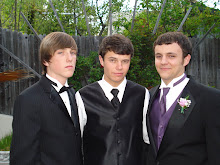In "A Very Old Man With Enormous Wings,” author Gabriel Garcia Marquez calls into question the typical idea of what an angel should be. When a very old man is found laying in the mud of the courtyard of Pelayo and Elisenda they take him to be nothing more than a ship wrecked sailor despite the vulture-like wings upon his back. Their neighbor, however, is quick to tell them that he is in fact an angel. When word spreads, curious people surround the “angel.”
The angel, however, is nothing like what the people would expect from a heavenly being. The conventional angel has wings that are white and majestic, is young and beautiful, speaks Latin and is to be held in awe. This poor sight is nothing like what an angel ought to be.
The reason for Marquez’s altered angel is to make the reader wonder why an angel must be so majestic. People have a mental picture of what an angel should look like but would they think anything less of a being if it did not have this conventional beauty? References to Jesus, thought by many to be the Son of God, show him as looking like nothing more than a man when he was on earth. He did not have a magnificent outward appearance that left people astonished.
Beauty holds great importance to people only when it is seen on the outside. People magazine wouldn’t top a list of the world’s most beautiful people with Mother Theresa. We value that which captures our eye like the maiden that was turned into a spider in the story.
Marquez is making the point that if angels are not that which we imagine them to be we will not hold them in such high regard. Similarly, the conventional appearance of an alien is a “little green man.” Since we assume this is what they look like, if we were to find a meteor that held an alien that looked just like a mosquito we would be disappointed. Perhaps, as Marquez suggests angels are much closer in appearance to ourselves than we would like to know.
The subtitle “A Tale for Children” is very important in showing what Marquez means to reflect in his story. Parents give their children a sugar-coated view on what the world is and so they picture the world as a generally happy and loving place. Only when they grow up do these children see the painful, harsh world as it is. Marquez is suggesting that we have a sugar-coated view of angels and we would be unwilling to see them as anything less than beautiful godly creatures. Without the beautiful outward appearance that we hope for they may become nothing more than a short-lived circus act.
Subscribe to:
Post Comments (Atom)

2 comments:
The focus on outward physical beauty in our society is certainly very profound. I found your analysis of how our expectations influence our opinion of an actual object to be very perceptive. What I wish you had explored further was what our expectations of a being or entity, for example an angel, have to do with whether something fits in the category of angel. Let us say that one expects an angel to heal the sick or feed the hungary. Something winged and beautiful comes along, but it does not do either of those things. Is it an angel? Do appearance or deeds have a greater impact in defining what we place in a mental category? I happen to think that deeds have more of an impact. We might say that Heidi Klum looks like an angel, but people will say the Mother Theresa was an angel.
I find your analysis to be extremely similar to mine in that I found interest in the fact that he challenges the traditions of image and beauty. Also, that Marquez implicitly criticizes those who preserve innocence and shelter children from the truths of the world. I find Marquez allows the reader to question and reconsider the conventions of religion, and also the social ideals of today, especially the power of image and beauty. Just because the angel isn't young, blonde, and glowing doesn't mean he can't perform miracles and be held in such high regard and respect. Just as, if a young actress may not have perfect skin or be entirely skinny and rich doesn't mean he/she can't perform or produce the same characters as well. I also liked your point about how "angels may be more like us than we would like to know" because it shows our insecurities with the traditions of religion. If we can't hold these heavenly beings to such high regard, it belittles our faith.
Post a Comment